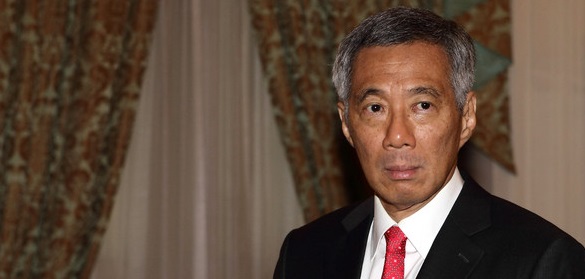by Howard Lee
Much seems to have been said recently about the effectiveness of our baby bonus scheme, and all indications of our total fertility rate seem to indicate that it is a failure.
This administration’s quick-switch policies pertaining population management must have been bewildering to most. My sister and I were born in the “stop at two” era, we witnessed the “have three or more if you can afford it” campaign in our early adult lives, and our children are now born in the “we’ll import babies if we have to” era. It’s ridiculous.
To me, recent efforts to establish a positive population growth rate fail because they are pro-baby. That is, they see babies as a product, and applying the crude concepts of production, incentives were offered to increase productivity. The baby bonus is not an innovative idea. It relegates the womb to a production line.
It is also ironic when we realise that declining birth rate is a common trait among developed countries, which is usually synonymous with higher education and greater affluence among its population. Throwing money will only do so much, really.
The significant change would actually be if policies switch from being pro-baby to being pro-family. Unless we recognise the importance of the family and how it acts as the centre for children, no amount of incentives will lead to its development.

Let’s be clear – it is not about having children, but about building and enhancing the family. We need to address issues that are preventing the family from developing, rather than focus on why people are not having babies.
To be honest, I have not come across clear evidence in other countries to indicate that being pro-family might work, but if what we are doing now is neither innovative nor working, then it is really time we consider alternatives.
Recently, AWARE seemed to have pointed us in the right direction, by proposing the mandate of paternity leave for working fathers. I am generally skeptical about AWARE’s objectives, and tend to believe that their latest venture has stronger interests in gender equality rather than family building. Nevertheless, the idea of making things easier for fathers in specific and the family by extension resonates with being pro-family, and it should be applauded for its direction, deliberate or not.
At the very least, such inclinations should set the tone for this administration to seriously reassess its position on population management. For once, perhaps the engineers that have been running this country might do better by consulting the social scientists.
What could be other possible steps to take in enhancing family life? I’d like to get the ball rolling here, but I will not be proposing solutions for reducing the cost of living, as I believe most of those who cite this as a reason for delaying family building seldom face this as a dire issue; rather, other social and environmental issues are more at play. In any case, “money and children” is a horse that has been flogged to death/deaf.
Instead, I’d rather focus on aspects that will make a difference to our quality of life, such that we would find it less demanding to have children. If you have more ideas, do add your contributions in the comments.
1) De-stress the education system – I have heard horror stories of school teachers recommending tuition to parents. As a parent, it frightens me to think we need to manage this pressure cooker, which is as detrimental to our selves as it is to the well-being of our beloved children.
2) Clear laws to prevent discrimination against parents at the workplace – I’m not talking about mere employment guidelines or case-by-case basis lawsuits. Parents, both male and female, leaving early to tend to their children should not be deemed less productive than their counterparts, and we need to give them real teeth against employers who see it their right to appraise them without full consideration for their lives outside of working hours.
3) Make things easy for the grandparents – I cannot imagine coping without the dedication of my parents in looking after my son, and no words can express my gratitude. Forget hired domestic helpers. Nothing beats having family to care for family. But grandparenting cannot happen on a full-time basis unless they retire, and pushing back our retirement age is a major step in the wrong direction in activating this family-support system. On the lighter side, concessions at attractions during working hours for “grand-outings” might serve to encourage grandparents to help out in child-minding.
4) More space – It is perhaps a crazy thought to ask for this in our urban squeeze. But if I feel the stress of a more compact society, everywhere and everyday, without reprieve from either my own home or common spaces, why would I even think of adding to that congestion? Meanwhile, our public housing policies are making our homes smaller, urban development might be going vertical yet increasing in density, and we are still increasing the (mainly adult) population size via immigration.
These deliberations suggest hard policy decisions, none that one government agency alone can make, and certainly a lot more difficult to implement than throwing out goodies with budget surpluses. But they are pro-family efforts, and something parents will appreciate.
And after all this, it will still depend on a mindset change by couples to make that leap of faith. But pushing ahead with these changes will, I believe, lessen the emotional stress that parents and parents-to-be face in our society, so that they can really give parenthood a proper consideration. We do not need money to love our little ones, but we sure could do with more time, understanding and mutual support to make it blossom.
The writer is dad to a feisty two-year-old, and has another one in waiting.




